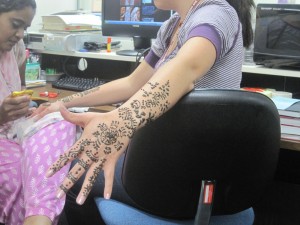

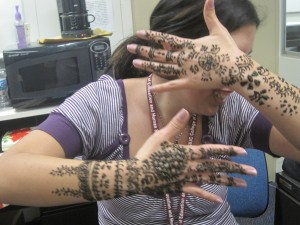
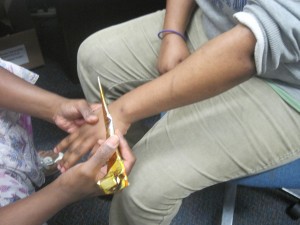

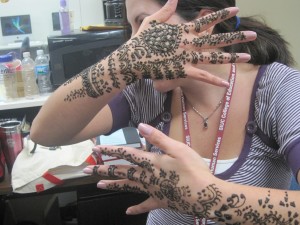

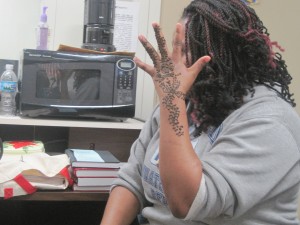
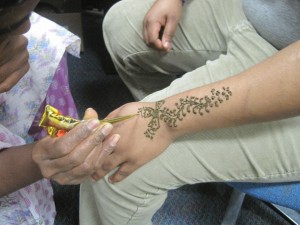

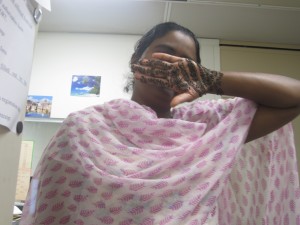
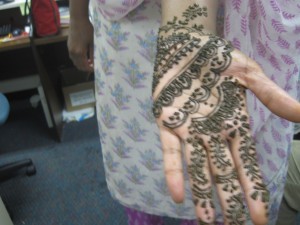 I walked into a body art session in my department on Friday and this was what I witnessed: the process of making temporary tattoos called the henna.
I walked into a body art session in my department on Friday and this was what I witnessed: the process of making temporary tattoos called the henna.
As opposed to permanent tattoos found now on bodies of very many Americans following the hip-hop trend of today, the designs here made from henna – the dye from a particular flowering plant – lasts for a couple of days, maybe even weeks, before going off by itself after constant washing. One thing for sure is that it looks beautiful, especially when well designed like these ones. And it didn’t take long to make.
The artist was none other than Catherine, the Indian Graduate Assistant, and friend, who works at the Foreign Language computer lab. Wouldn’t you want to get something as beautiful as this? I did get her to write my name on my left arm, but it didn’t turn out as beautiful as these, maybe because I didn’t have a fair skin.
1
Temitayo at http://YourWebsite
I want 🙁
Posted at April 24, 2010 on 9:43pm.
2
Kola Tubosun at http://www.ktravula.com
You can have 🙂 Just get on the plane and come over here. Or go to the nearest Nigerian grandmother. She should have some for ya.
Posted at April 25, 2010 on 4:23pm.
3
Myne Whitman at http://www.mynewhitmanwrites.com
Henna always looks lovely.
Posted at April 24, 2010 on 10:35pm.
4
Noni at http://YourWebsite
You do realize that we have henna in Nigeria, shebi? And tattoos are not only related to hip hop, have you looked at rock musicians???
Posted at April 25, 2010 on 4:08am.
5
Kola Tubosun at http://www.ktravula.com
My grandmother had some of these body art paints, but I doubt that they were henna. Or maybe I was too young to remember. I know about ones called laali which are also body art stuff for women. Beside that, she also had permanent tattoos on many sides of her body, including her forearms, so I know for sure that it is neither an American or a recent art form.
I had mentioned “recent”, “American”, “hip-hop” and “trend” only because that is what it has become. I don’t see many Africans doing it anymore, as it has assumed some kind of a stigma associated with trend and modernity, which is sad. For our grandparents, it was just art, and they wore them proudly without fear of stigmatization that young people nowadays in Africa have to face.
Posted at April 25, 2010 on 4:31pm.
6
Noni at http://YourWebsite
Laali is henna.
Posted at April 25, 2010 on 8:19pm.
7
Kola Tubosun at http://www.ktravula.com
I see. Thanks.
Posted at April 25, 2010 on 11:31pm.